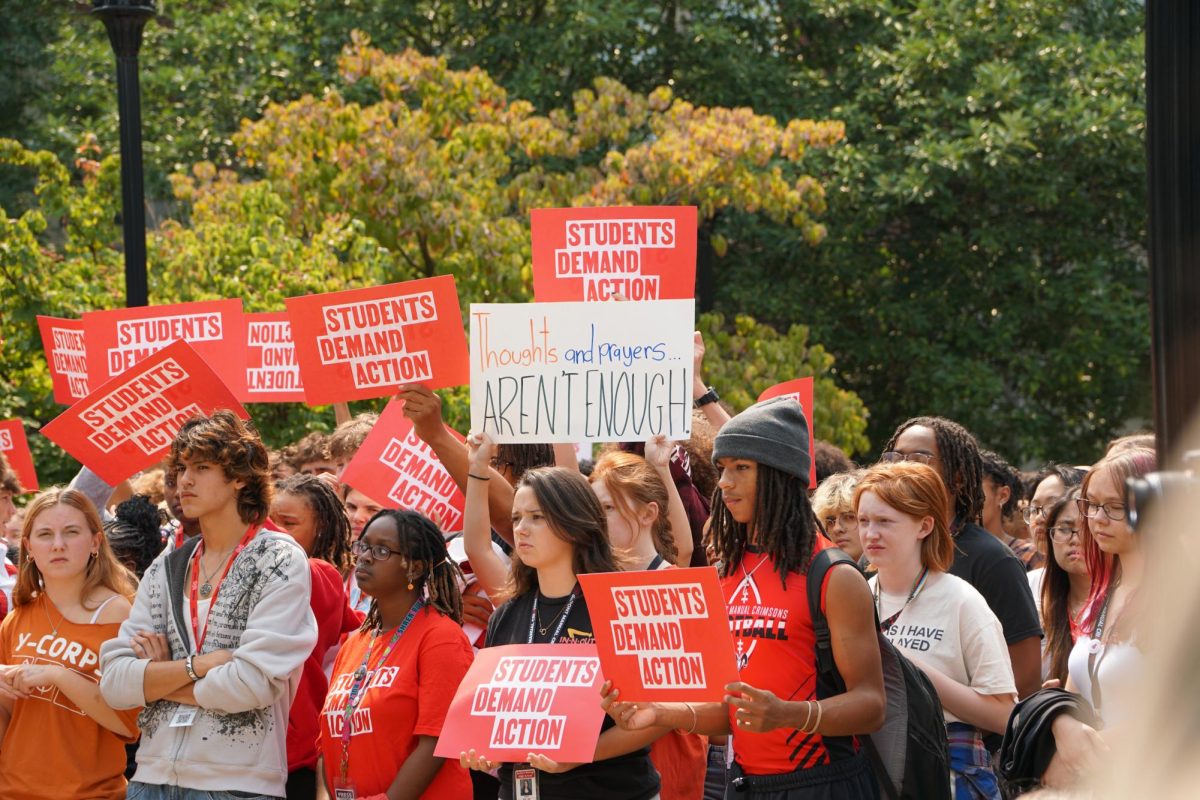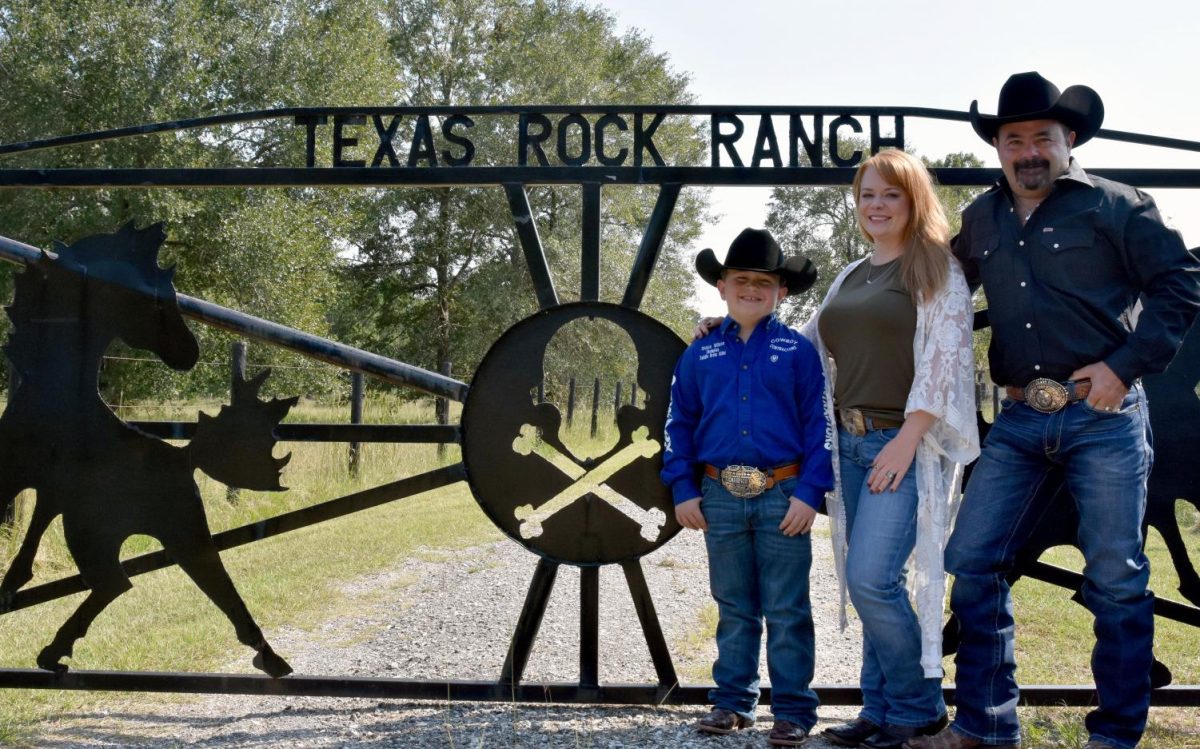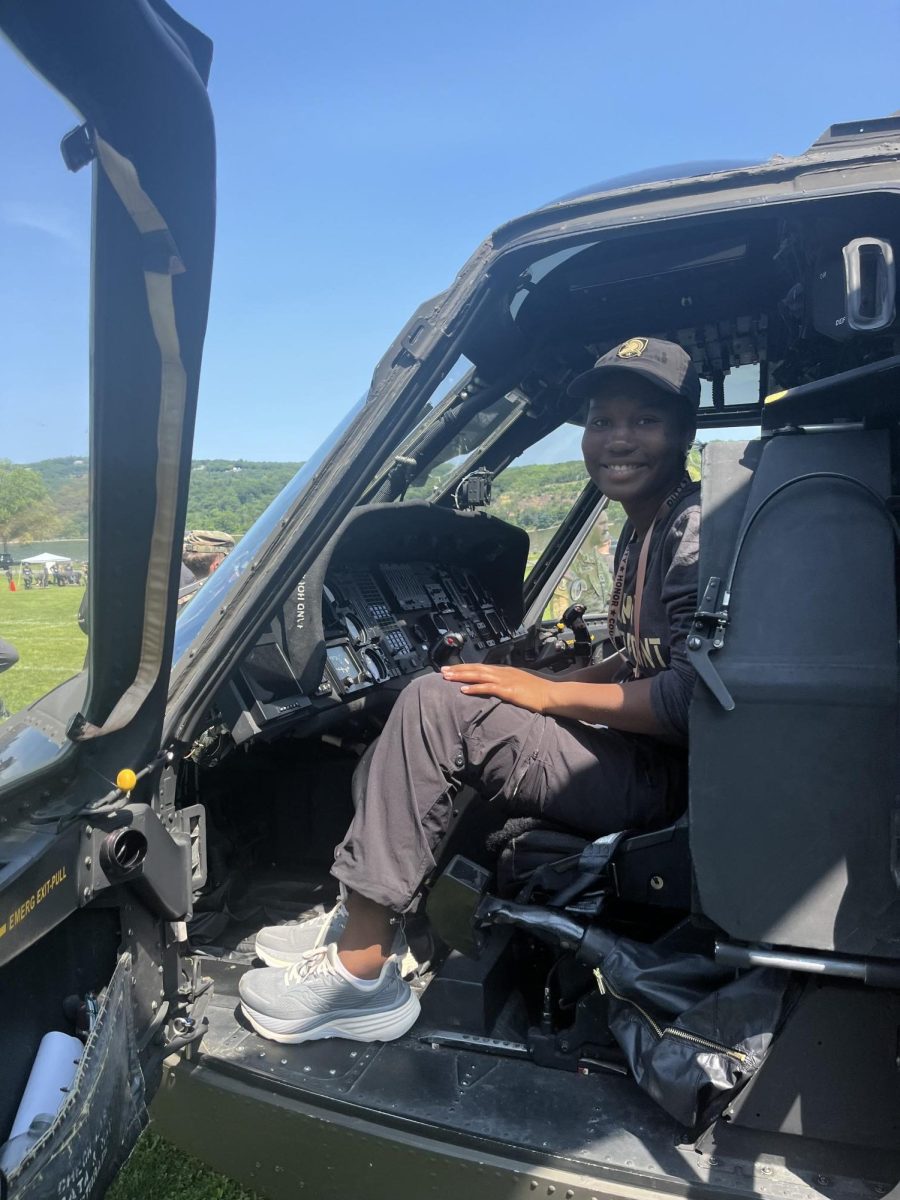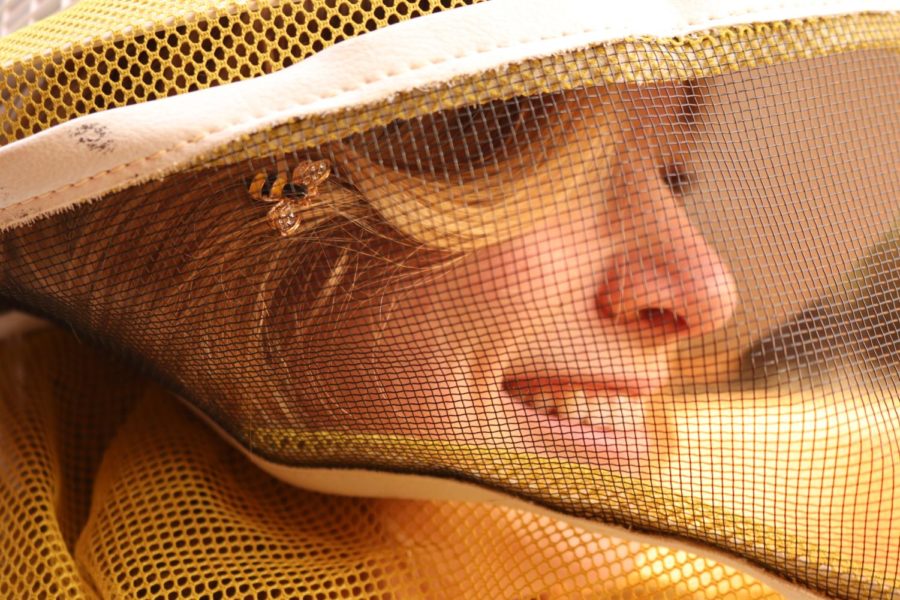Walker embracing the buzz
Adopts beekeeping, establishes club to sustain interest
Shrayes Gunna
Coppell High School senior Elizabeth Grace Walker developed a keen interest in bees at a young age and apprentices with local beekeeper Rory Carrick. To diffuse her interests, Walker founded the CHS Bee Club, highlighting conservation efforts and bee behavior.
December 15, 2022
At first glance, the name “Bee Club” might take someone aback by its notability; they might be thinking, “Why on earth is there a club dedicated to bees?” or “Bees? What would you even do in that club?”
However, Coppell High School senior Bee Club president Elizabeth Grace Walker was able to capture the bigger picture of what bees provide to this world, and cultivate the niche interest into something fruitful.
Walker’s interest in bees wasn’t always something she withheld. It wasn’t until the topic was featured in one of her IB Biology class lectures in junior year that she stepped into this new realm.
“The very beginning of my interest in bees happened last year in my IB Biology class when we were studying MRNA structures,” Walker said. “There was this little blurb we read about queen bees and eusocial organisms, and I immediately became obsessed.”
Walker was entranced by the complexities and intricacies of bee hives.
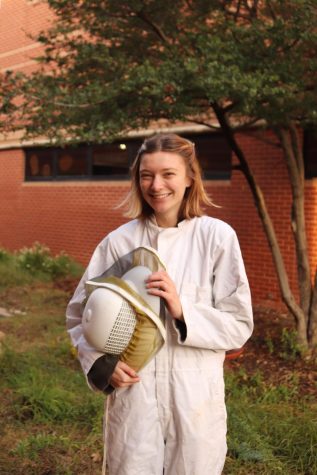
“Hives start preparing new queens within queen cells, which are these huge, alien-like vats, where new queens start to develop, and they eat this thing called royal jelly,” Walker said. “The queen bee sends out a pheromone developed by this royal jelly that suppresses female bees from laying eggs, which prevents working lay, which is a bad sign for hives as it indicates the hive isn’t productive. That’s what got me into bees; I found it fascinating that you can have eusocial organisms that can communicate and operate as a whole but are so many little creatures.”
For Walker, when gaining a liking towards a subject, she doesn’t tread past it, but becomes completely captivated by its every component. To expand her understanding about bees, Walker made it a priority to use the resources around her to her advantage.
“My interest in bees was a sudden turn-around for me. I am a person who can become obsessed with things quickly, and I go hard when I get into something new,” Walker said. “I went to the Coppell Cozby Library, and I looked up everything on bees. I found a section in the library dedicated to bees and read every single book there.”
Walker’s passion was solely fed through the words of numerous tangents of the books she read, until she was faced with a new opportunity where she could experience the beauty of bees up close: beekeeping.
“I got in contact with one of my mom’s friends, Rory Carrick, who runs the local shop, The Jacaranda Tree, with his wife. [They] are both from South Africa,” Walker said. “Mr. Carrick would let me come to his home to see his six European honey hives in his backyard. I would examine what he did, the process of checking [European honey bees] and what you need to run the hives. Eventually, in the summer, I helped him maintain the hives.”
Apprenticing gave Walker the chance to study bees from a different, more tactile perspective.
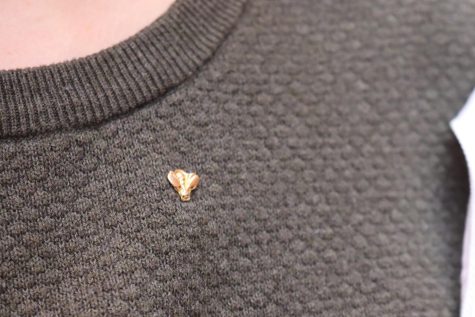
“Since I read a lot of beekeeping literature prior to beekeeping, I knew in theory how you were supposed to do things,” Walker said. “But, it’s very different actually in practice and having an experienced beekeeper who has been through those things before, to show you those ropes, has been so beneficial to me.”
Soon, Walker was prepared to utilize her newly exercised skills, and moreover, create an outlet to propagate her knowledge.
“Midway through one of my sessions [with Mr. Carrick], we were talking about me establishing my own hive and creating a club at the high school came up, and I was like, ‘That’s actually a really good idea,” Walker said. “So, I talked to my IB Biology teacher and she was super on board with it and started to sponsor it. It was an opportunity for me to talk more about bees because I am really passionate about them and also turn it into something tangible.”
IB Biology teacher and Bee Club sponsor Holly Anderson was more than happy to encourage Walker in her ardent devotion as it spread light to environmental topics.
“It makes me happy to support students when they are passionate about something,” Anderson said. “Being able to be here and support [Walker] in her passion is why I am here and do things. Bees are super important to our future, especially when we are looking at food production. They are important for our environment, and they are dying out because of human-caused problems, which causes other issues in the ecosystem.”
Walker is enthusiastic in how she wants to run the Bee Club, desiring to circulate the same passion that got her into bees to other people. She implemented three main initiatives for the club that she ambitions to reach by the end of the school year.
“Number one is to [spread] knowledge and expand the practice of beekeeping because it’s a ‘dying’ practice,” Walker said. “People don’t do it for a hobby anymore; there has been a lot more buy-in in general because of the attention honey bees have gotten over the past two years in journalistic articles through things like ‘Save the bees!,’ and that is good, but the Bee Club specifically seeks to spread information on beekeeping and how that is beneficial to our world.”
Walker also desires to exhibit the different types of bees rather than just honey bees as they are not the most prolific, and also establish their own pollinator bed at CHS by next year.
Understanding of the fright one might face when around bees, Walker doesn’t let that halt her from spreading her love for them. She instead acts as though it’s the driving factor to open people up to new opportunities and help them combat their fears.
“Bees won’t hurt you if you don’t hurt them,” Walker said. “Bees will know how you feel, so if you were to come into the hives, feeling agitated, the bees will know that you are scared of them and start getting aggressive. I know people who have fears of bees that aren’t super rational around them, so my advice is to be friendly with one bee and build yourself up to seeing a hive. You have to be one with the bees.”
The members of Bee Club are encouraged by Walker to grow their connection with bees and continue to educate themselves to the greatest extent possible.
“I was so intrigued by [Walker’s] passion about not only beekeeping and also environmental conservation,” senior Bee Club vice president Ally Jobe said. “Seeing her be so excited about something, I wanted to join her and help her start [Bee Club]. Last year, I [knew nothing] about bees and I was frankly afraid of them, so being in the Bee Club and being with a lot of other people who loved bees has made me learn more about them and appreciate them more.”
Walker has always strived to make her surroundings a better place by participating in conservation efforts and taking part in the phenomena that is nature. She finds it crucial for people to resonate the same energy she faces with not only bees but also with the world, and use it to their utmost ability.
“From such a young age, the importance of environmental conservation has been pressed into us. We know we are at the heart of a climate crisis just by seeing all the changes around us,” Walker said. “I’ve always loved animals, the environment and nature sciences. I think there is a point that needs to be made about knowing things about your environment and allowing that to foster a greater appreciation for the things around you.”
This story was originally published on Coppell Student Media on December 9, 2022.


